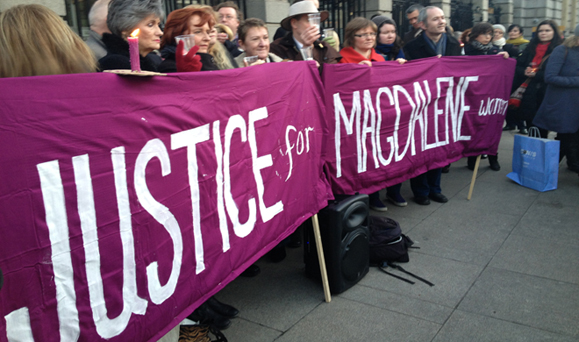On behalf of the Irish State, on February 19 Taoiseach Enda Kenny gave a long-awaited and forthright apology to the victims of Ireland’s Magdalene laundries, the Church-run institutions where thousands of young women were kept – often against their wills – throughout the 1900s.
In an address that was largely praised by survivors, family members and politicians alike, Kenny stated: “I, as Taoiseach, on behalf of the State, the government and our citizens deeply regret and apologize unreservedly to all those women for the hurt that was done to them, and for any stigma they suffered, as a result of the time they spent in a Magdalene laundry.”
The formal apology came just a few weeks after the release of the McAleese Report, an intensive study conducted throughout 2012 to determine the State’s relationship with the laundries. The report, led by the recently retired senator Martin McAleese (the husband of former Irish president Mary McAleese) was ordered in the summer of 2011, when the United Nations Committee Against Torture censured the Irish government for its failure to investigate long-standing allegations of human rights abuses and conditions tantamount to torture.
Kenny praised the McAleese Report as having shone “a bright and necessary light on a dark chapter of Ireland’s history.” Ten laundries operated throughout Ireland from 1922 to 1996, when the last, run by the Convent of the Sisters of Our Lady of Charity on Sean Mac Dermott Street in Dublin, shut its doors. Upwards of 10,000 girls, with a median age of 23 years old, passed through the laundries. The total number is thought to be at least 4,000 greater, as the report was unable to obtain adequate records from the Sisters of Mercy-run Galway and Dun Laoighre laundries.
The report revealed that the State was directly involved in over a quarter of all admissions to the laundries, through the social services, reformatories, psychiatric institutions, probation services and industrial schools, and that many state-run institutions, including prisons, availed of their laundry services, for which the women were never paid.
Speaking in Dáil Éireann, where Magdalene survivors and advocates crowded the visitors gallery, Kenny declared that the women would get the compensation and recognition they had long fought for.
He also spoke to Ireland’s national conscience, commenting that the laundries had “cast a shadow over Irish life, over our sense of who we are.”
“Today, just as the State accepts its direct involvement . . . society too has its responsibility,” he said. “I believe I speak for millions of Irish people all over the world when I say we put away these women because for too many years we put away our conscience . . . We lived with the damaging idea that what was desirable and acceptable in the eyes of the Church and the State was the same and interchangeable.”
The Taoiseach was visibly moved as he talked about meeting with many of the survivors, most of whom are now elderly, and the vivid detail with which they were able to recall the conditions they endured.
“As a society, for many years we failed you. We forgot you or, if we thought of you at all, we did so in untrue and offensive stereotypes,” he concluded. “This is a national shame, for which I again say, I am deeply sorry.”
Irish State Apology for the Magdalenes

A rally by the advocacy group Justice for Magdalenes. Photo: Google Images.

Leave a Reply